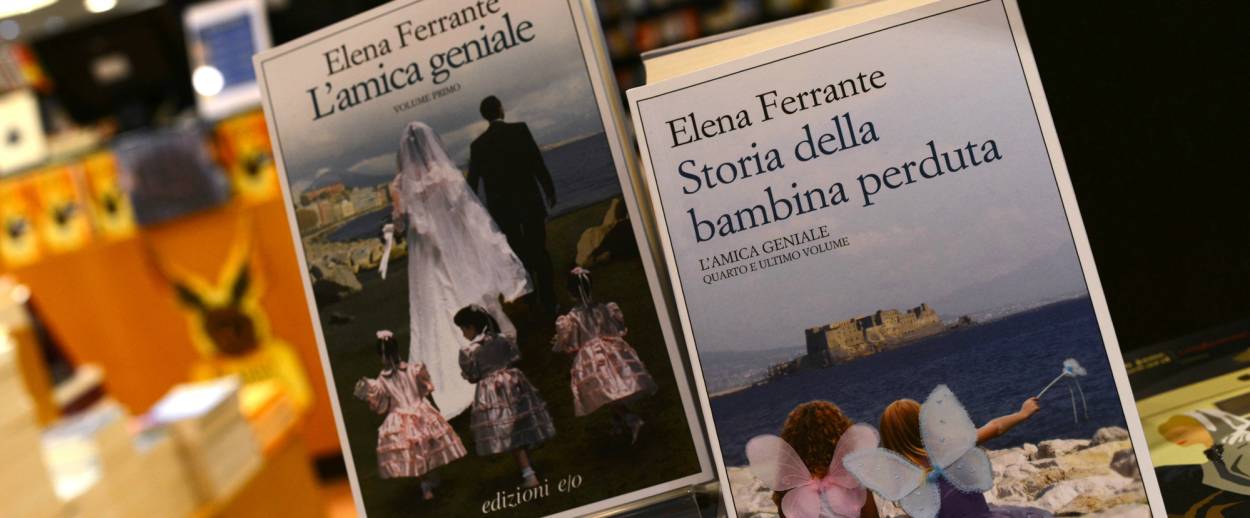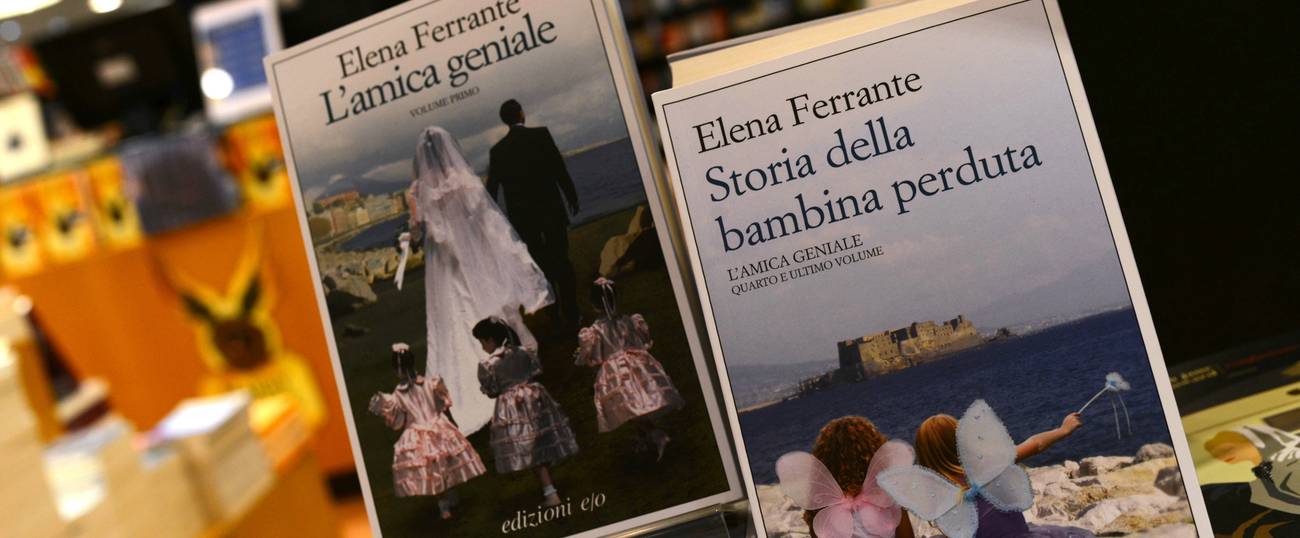The Difficulty and Intrigue of Getting to Know Elena Ferrante
We recently learned the true identity of the author of ‘The Neapolitan Novels,’ whose mother was a German Jew who fled the Nazis




One of the most buzzed-about mysteries in the literary world (a place, let’s be honest, that is not exactly replete with intrigue) was apparently solved this week, with the unmasking of enigmatic Italian author Elena Ferrante. Using a mixture of financial records, royalty statements, and other documentation, journalist Claudio Gatti managed to prove to the satisfaction of most that Ferrante, the author of the wildly Neapolitan Novels, concerning several decades in the lives of two girls from a poor neighborhood Naples, is actually a writer and translator living in Rome, by the name of Anita Raja. In other words, a writer claiming to be a female Italian novelist has turned out to be…a female Italian novelist. Case closed.
This being the Time of the Internet Mob—not to mention the herds of fans on social media who like to feel entitled to communicate directly to their chosen authors at all times and to receive immediate friendly gratification from them in the form of likes, retweets, and bland Twitter banter (precisely the sense of ownership and obligation Raja may have likely been trying to avoid)—everybody has an opinion about it. Many readers are outraged by the news, given Ferrante’s obvious desire for privacy and her unwillingness to play the fame game. (Her desire for anonymity, in fact, was virtually her only known biographical information.) Others have—wrongly—compared her to literary hoaxes like J.T. LeRoy, despite the fact that LeRoy was a persona, a person pretending to be another person based on the fictional events of his real life, and desperately sought attention, celebrity friendships, and fame; Elena Ferrante is simply a pen name. This discovery, wrote Adam Kirsch, “was more like a criminal investigation than literary criticism.”
Then there’s the “appropriation” debate. Elena Ferrante writes vividly about poverty and class in Naples with such clarity her readers assumed that much of her fiction must have an element of autobiography; Anita Raja grew up in Rome, as the daughter of a magistrate. As Adam Kirsh, writing for the New York Times observed: “It appears that one of the world’s best-loved writers is actually a sterling example of the power of appropriation. For it turns out that in telling the story of poor Neapolitan girls like Lina and Elena, Ms. Raja was claiming the right to imagine the lives of people quite unlike herself. In doing so, she was able to write books in which millions of people found themselves reflected—books about feminism and patriarchy, poverty and violence, education and ambition….this is the paradox of literature, which is also the glory of humanism.”
Fair enough, and it supports what I’ve always thought: If you’re being accused of cultural appropriation, it’s because you didn’t write it well enough.
Assuming autobiography, sorting people into the boxes of what they are allowed to write about given their personal experience, and refusing that they budge from them, is perhaps the dreariest and least imaginative way of thinking about fiction writing, the most inherently imaginative act performed by human beings. But given what we know about Raja, it’s worth looking at why the idea of an alias might not only have appealed, but genuinely intrigued. Her father was a Roman magistrate, as I mentioned, but her mother was a German Jew who fled to Italy from the Nazis in the 1930s and lost most of her family in the Holocaust.
And that’s where things get interesting. The act of Jewish survival during World War II and in some cases, beyond, was essentially one of alias. It involved false papers, fictional identities, finding a place to hide, finding a way to pass. A European Jew remade themselves as another person—whether by literally living under an assumed name, or by remaking themselves into an entity solely focused on hanging onto the vestiges of their old lives that had been completely eradicated—or they had no chance at life. It’s tempting, then, to see Raja’s alias as a kind of atavistic psychological experiment, the slipping on of another identity—both a performance of what novelists do in creating a character, and what her mother must have done, in some regard, to survive. Perhaps one day Raja will be comfortable enough to tell us her motivations, to write about herself. But for now, the novels are more than enough.
Rachel Shukert is the author of the memoirs Have You No Shame? and Everything Is Going To Be Great,and the novel Starstruck. She is the creator of the Netflix show The Baby-Sitters Club, and a writer on such series as GLOW and Supergirl. Her Twitter feed is @rachelshukert.